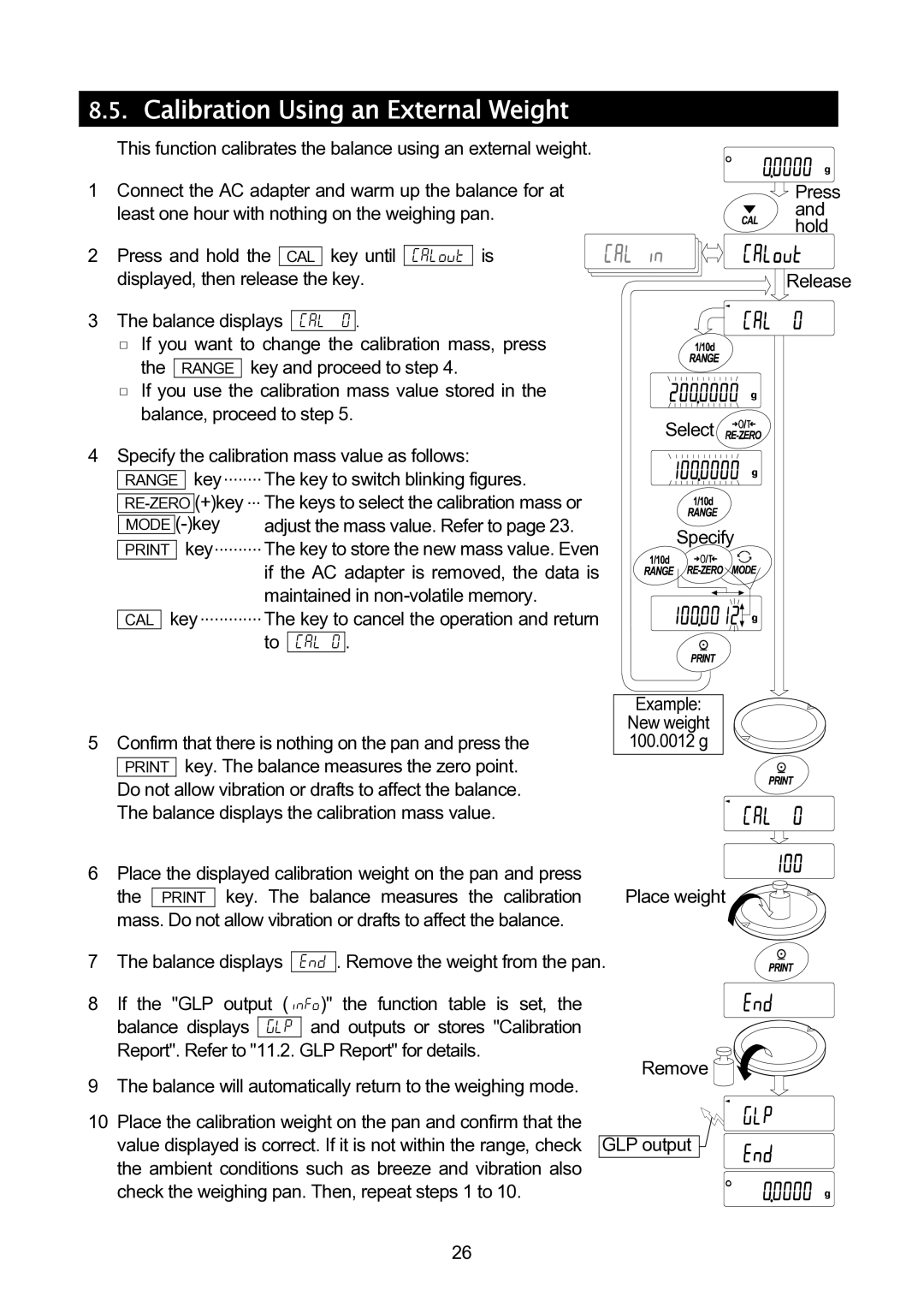
8.5.Calibration Using an External Weight
This function calibrates the balance using an external weight.
1Connect the AC adapter and warm up the balance for at least one hour with nothing on the weighing pan.
2 | Press and hold the |
|
|
|
| key until | Calout | is | |
| CAL | ||||||||
| displayed, then release the key. | ||||||||
3 | The balance displays |
|
|
|
|
|
| ||
| Cal | 0 | . |
|
| ||||
If you want to change the calibration mass, press the RANGE key and proceed to step 4.
If you use the calibration mass value stored in the balance, proceed to step 5.
4Specify the calibration mass value as follows: RANGE key........ The key to switch blinking figures.
| adjust the mass value. Refer to page 23. | ||
MODE | |||
|
| key.......... The key to store the new mass value. Even | |
|
|
| if the AC adapter is removed, the data is |
|
|
| maintained in |
CAL key............. The key to cancel the operation and return
to Cal 0 .
 Press
Press
and hold
 Release
Release
Select
Specify
5Confirm that there is nothing on the pan and press the PRINT key. The balance measures the zero point.
Do not allow vibration or drafts to affect the balance. The balance displays the calibration mass value.
Example:
New weight 100.0012 g
6 Place the displayed calibration weight on the pan and press | Place weight |
the PRINT key. The balance measures the calibration | |
mass. Do not allow vibration or drafts to affect the balance. |
|
7 The balance displays
end
. Remove the weight from the pan.
8 | If the "GLP output (info)" the function table is set, the |
| balance displays glp and outputs or stores "Calibration |
| Report". Refer to "11.2. GLP Report" for details. |
9 | Remove |
The balance will automatically return to the weighing mode. | |
10 | Place the calibration weight on the pan and confirm that the |
| value displayed is correct. If it is not within the range, check GLP output |
| the ambient conditions such as breeze and vibration also |
| check the weighing pan. Then, repeat steps 1 to 10. |
| 26 |
